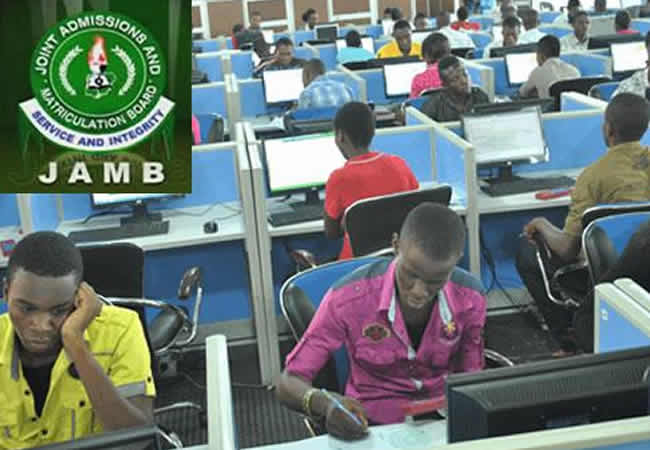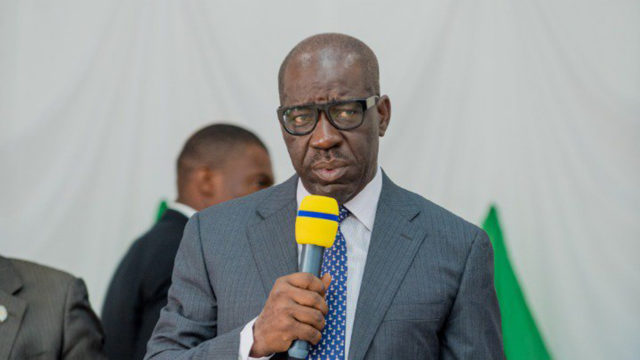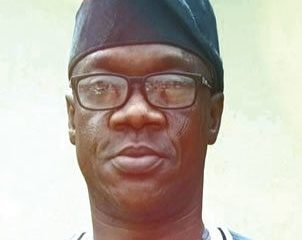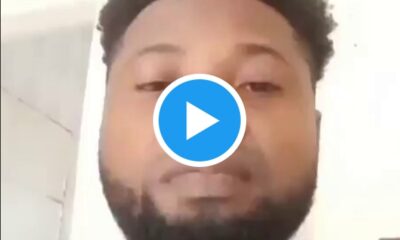News
Wande Abimbola @91: How An Ábíkú Decided To Live (1) [OPINION]
Published
4 months agoon
By
Editor
Tunde Odesola
At 14, Ogunwande left his father’s house for the clinic of a renowned olóòlà, the penis stylist in Akeetan, his Oyo hometown, and declared his mission to have the foreskin of his manhood surgically removed. “Mo fe da’ko,” he told the baba of his intention to be circumcised.
The baba shot him a knowing look, fetched his surgical tools and intoned some words to himself. As directed, a bare Ogunwande lay spread-eagled, wrapping his arms around a giant gourd that passes for a surgical table while the olóòlà set to work. With a dexterity that belonged to the ages, the olóòlà peeled off the foreskin as though he was unwrapping a candy.
Blood gushed, pain panged but Ogunwande did not flinch. His face was deadpan, like still water at night. He got up, put on his clothes and headed back home as if he had only visited a tailor who had taken his measurements for an agbádá. He walked with the swagger of a youngster returning home from watching Alapinni, the father of all the egúngún (masqueraders) in Oyo.
Every why has a reason, says William Shakespeare. A newborn should be circumcised at birth or within the first few days of life if the parents believe in religious or traditional beliefs. Why then was Ogunwande, begotten by religious and traditional parents, not circumcised at birth? Why was it his call to decide when to be circumcised? Why did he not wince or cry when he was circumcised?
FROM THE AUTHOR: Ebenezer Obey: Unstoppable Flight Of Destiny (1) [OPINION ]
Well, Ogunwande was born an àbíkú. His mother, Sangodayo Awele, had knelt four separate times before the midwife, bearing four children, one after the other, but she lost each at infancy. However, Ogunwande’s parents already had two children, Ogunyoyin and Ogundiya, before abiku visited them four times in succession.
An article, “Grief and Bereavement in Fathers After the Death of a Child: A Systematic Review,” published in April 2021 by the American Academy of Pediatrics says fathers and mothers react to the loss of a child differently. The article written by Michael J. McNeil and four others, emphasises that, “Fathers often avoided discussing their grief with others, returned to work earlier, and used goal-oriented tasks as coping strategies. Intense grief reactions and posttraumatic psychological sequelae diminished over time in mothers yet persisted in fathers.”
But another article, “Bereavement Experiences After the Death of a Child,” written by Grace H. Christ, et al, and published by the world’s largest medical library – the National Library of Medicine – owned by the US government, says, “Women typically grieve more intensely and for longer periods of time than do their spouses.”
The loss of her four babies scorched the heart of Sangodayo like the leaping tongues of fire crackling dry twigs. Because it was a period when husbands were lords, Sangodayo knelt before her husband, Iroko Abimbola, and pleaded that they both go to Babalawo Ajao in Ahoro Iseke, Oyo, to protect the newborn against returning to the netherworld.
When mother and father got to Oluwo Ajao’s place, the priest gave them his object of divination to say their hearts’ desires to. The parents did not divulge what brought them to the babalawo but after speaking to the object of divination, and Ajao consulted Ifa, ‘Eji Ogbe’ (good omen) was the revelation the babalawo got, and he said in Yoruba, “Sangodayo, you’re pregnant. You do not want the baby to die like the others that died before it.”
FROM THE AUTHOR: Ebenezer Obey: Unstoppable Flight Of Destiny (2)
Shocked, Sangodayo confirmed she was pregnant even as her husband recalled the loss of their four babies. “This baby will live,” Oluwo Ajao predicted, adding, “If you will obey these three taboos.” “What are they,” Sangodayo asked eagerly; “We will do them,” Iroko assured.
The babalawo cleared his throat, “One, the child must never be beaten. Two, he must not have tribal marks. Three, he must not be circumcised unless he willingly volunteers to do so himself.” “We shall adhere strictly to the taboos,” the husband reassured the babalawo. And the couple departed.
After some moons, the abiku crept up from the underworld realm of ageless wandering and knocked on the door of life, hoping to make father and mother cry a river the fifth time. Little did it know that a trap had been set for the whale in the depth of the deep so that no one would wail no more.
Iroko and Sangodayo welcomed their bittersweet baby with hope and trepidation. They named him Ogunwande, which means ‘Ogun has come to dwell with me’, in recognition of the family’s ultimate belief in the Ogun godhead.
Ogunwande was never beaten, circumcised or given tribal marks. And he lived as predicted by Oluwo Ajao. Iroko consecrated his son to the gods. So, Ogunwande learnt Ifa, ijala, and the worshipping of Ogun, Sango, eegun etc, knowing the panegyrics of various deities. He also learned farming and hunting as a youngster in the family’s farmstead located away from their Akeetan home. The family lived on the farmstead, occasionally coming home during Ogun, Sango, and Egungun festivals.
Ogunwande said, “The farmstead was remote and threadbare when compared with the amenities in Akeetan where the family house is located. We lived more on the farmstead and occasionally came home to Akeetan. Whenever we came back home from the farmstead, we would be super excited to see even the omolanke (cart). The farmstead was considered a bush.
FROM THE AUTHOR: OPINION: Abacha Protests In Heaven, Begs To Return
“We had come home to celebrate one of the festivals, and I passed by Native Authority Town School near our house. I saw some children wearing the same uniform, playing on the field. I was surprised.”
A curious Ogunwande sauntered onto the school field and asked a student, “What are you boys and girls doing here?” The shocked student retorted, “What are we doing here? We are learning, of course!” Ogunwande got more confused, “Learning? What is learning?” The student laughed out loudly, “Ara oko (bushman), you don’t know what learning is?” “I don’t know,” Ogunwande said, crestfallen. “What’s your name?,” the impudent student asked in Yoruba. Ogunwande told him and watched as the student used a twig to write O-g-u-n-w-a-n-d-e on the ground. “That’s your name, ara oko,” the cheeky student said.
Ogunwande followed the student to his class, where he was shown what a classroom looks like. “You better tell your father that you want to school and stop chasing rats and rabbits about,” the student admonished.
School was love at first sight for ’Wande, who ran home to tell his father of his newfound desire. “I prostrated before my father; nobody in the family talked to him standing, my mother kneels to talk to him, I also prostrate to talk to my two older siblings, Ogunyoyin and Ogundiya, whom my parents had before the four abikus,” Ogunwande said. But his father wouldn’t have his son go to school. “Sukuru or what did you call it? Is that not the place where they write meaningless little things in books? Is that what you want to do with your life? Is that a job? You’re lazy! My son will never be lazy! So, you can’t go into the forest and kill buffalo, leopards and snakes? It’s writing small, small nonsense on paper that you want to be doing in your life. Is that a job? You won’t do that in my family?”
Ogunwande, subsequently, went on a hunger strike for three days, eating nothing, and he became very weak. His mother, Sangodayo, begged and wept but Iroko was unperturbed. Sangodayo, “My lord, please, remember the prediction of Baba Ajao, who said when Ogunwande comes of age, he would want to choose a peculiar job; remember, my lord, that the Baba said we should not stop him!”
But Iroko won’t budge. “So, Sangodayo ran to my father’s younger brother, Ogunyemi Ojo Olaluwoye, to come and prevail over my father,” Ogunwande recalled. Ojo spoke to my father while prostrating and pleaded my case, saying, “My lord, you’ve been to Lagos and the Second World War. Western education is the future of the world. Let Ogunwande go to school. My son, Ige, would also be joining them, too. Both of them can go together.”
“My father kept quiet for a long time after Ojo made his plea,” and he said, “You too are very lazy, Ojo! That’s why you’re supporting young boys, who should be displaying valour, to go and waste their time writing small small nonsense! It’s ok, he can go and ruin his life!”
Ogunwande survived on broth for the days his father was adamant and he became so gaunt, earning himself the nickname Olómí tóóró.
But ’Wande didn’t abandon Ifa and the worship of the deities. The knowledge of Ifa came in handy for him one day when a snake bit a student in school.
To be continued.
Email: tundeodes2003@yahoo.com
Facebook: @Tunde Odesola
X: @Tunde_Odesola
You may like


Bello And Enenche: A Tale Of Two Lions [OPINION]


OPINION: Why Were Miyetti Allah And Tinubu’s Iyaloja In Ibadan?


OPINION: Bobrisky’s Masque, Yahaya Bello’s Boa


OPINION: Onitiri-Abiola And The Madness In Ibadan


OPINION: For Yoruba Muslims And Pentecostals


OPINION: Bobrisky And Our Other S/He Offsprings

The Joint Admissions and Matriculation Board, JAMB, has released the 2024 Unified Tertiary Matriculation Examination results.
Over 1.94 million candidates registered and sat the examination in 118 towns and over 700 centres across the country.
The Registrar of JAMB, Prof. Ishaq Oloyede announced the release of the UTME results at a press conference held at the board’s headquarters, Bwari, in Abuja on Monday.
The examination which began on Friday, 19th April ended on Monday, 29th April 2024.
The board earlier explained that it chose to delay the release of the UTME results by some days because it needed some time to scrutinize the results to ensure credibility and integrity of the results, ensuring that there are no questions or any form of unclarity concerning the results particularly as regards the issue of impersonation, mixed biometrics, and other forms of malpractices.
Details later…

The West African Examinations Council, Nigeria, has said the West African Senior School Certificate Examination for school candidates will commence on Tuesday, April 30, 2024 and end on June 24, 2024.
Speaking on Monday at the WAEC Lagos Office, Head of Nigeria Office, Dr Amos Dangut, said the council was ready to conduct the examination.
Dangut said, “I am delighted to inform you that WASSCE for School Candidates, 2024 will take place between Tuesday, April 30 and Monday, June 24, 2024, in Nigeria, spanning seven weeks and six days. The examination will be conducted in four WAEC member countries, namely: Nigeria, Gambia, Sierra-Leone and Liberia.”
“We want to intimate candidates of the council’s readiness to conduct WASSCE. ”
He added, “We are set for the conduct of WASSCE for School Candidates, in 2024 in Nigeria. The Council also, in collaboration with the Federal Ministry of Education, the State Ministries of Education, the Nigeria Police, other security agencies and other stakeholders, deliver, on its mandate to conduct credible examinations for the Nigerian Child and the general public.
“We remain ever grateful to the Honourable Minister of Education, the Honourable Minister of State, for Education, all the State Ministries of Education, the Inspector-General of Police, and indeed, all our stakeholders, for their usual support and cooperation, even as we count on them once again.”
News
Jubilation As Obaseki Raises Minimum Wage To N70,000
Published
1 hour agoon
April 29, 2024By
Editor
The Edo State Governor, Godwin Obaseki, has increased the minimum wage for workers in the state from N40,000 to N70,000.
The governor made the announcement at the inauguration of the newly built ultra-modern Labour House secretariat complex for labour unions in the state, along Temboga Road, Ikpoba-Hill, Benin City.
READ ALSO: Why I Hate Mohbad More In Death – Naira Marley’s Associate
Details shortly…

BREAKING: JAMB Releases 2024 UTME Results

JUST IN: WASSCE Begins April 30
Jubilation As Obaseki Raises Minimum Wage To N70,000
Trending

 News5 days ago
News5 days agoDrama! Supporters Of Yahaya Bello Perform Rituals to Prevent His Arrest By EFCC [Video]

 News4 days ago
News4 days agoEdo: FRSC Threatens Sanction On Truck Drivers Loading Goods, Passengers Together

 Headline4 days ago
Headline4 days agoSaudi Arabia Opens First Alcohol Store, Nigerian Muslims React

 Headline4 days ago
Headline4 days agoVIDEO: Meet Nigerian Pastor Who Predicted World Will End April 25

 News4 days ago
News4 days ago243 Passengers Cheat Death As Air Peace Plane Makes Emergency Landing At Lagos Airport

 Metro4 days ago
Metro4 days agoJUST IN: Four-year-old Boy Dies In Abuja School, Parents Suspect Foul Play

 Metro4 days ago
Metro4 days agoJUST IN: Protesters Storm APC Secretariat, Demand Ganduje’s Resignation

 Politics4 days ago
Politics4 days agoEdo Guber: PDP Unveils 200-member Campaign Council

 News4 days ago
News4 days agoEFCC Withdraws Appeal Against Former Kogi Gov, Bello

 News3 days ago
News3 days agoDSTV Price Hike: Five Alternatives Nigerians Are Opting For






























